
Research Newsletter - Issue 86: Spotlight
DCU's Contribution to the Sustainable Development Goals (SDGs)
Earlier this year, DCU rose in Times Higher Education’s (THE) Impact rankings for contributions to several of the UN’s Sustainable Development Goals. THE are currently leading the way in including the SDGs in their ranking systems, though other agencies are looking to incorporate impact elements to their data capture.
This recent success reflects the wide range of researchers at DCU whose innovative projects and ongoing work address specific or even multiple SDGs. You can find out more about some of this exciting work below.
SDG-linked research
Dr Mingming Liu is an Assistant Professor in the School of Electronic Engineering and a Lead Investigator with the Insight Centre for Data Analytics. Much of his research focuses on green transportation solutions in urban environments.
“As researchers, we are interested in looking into various design and implementation challenges through leveraging novel data-driven models and algorithms. Our objective is to significantly improve system efficiency and user experience.”
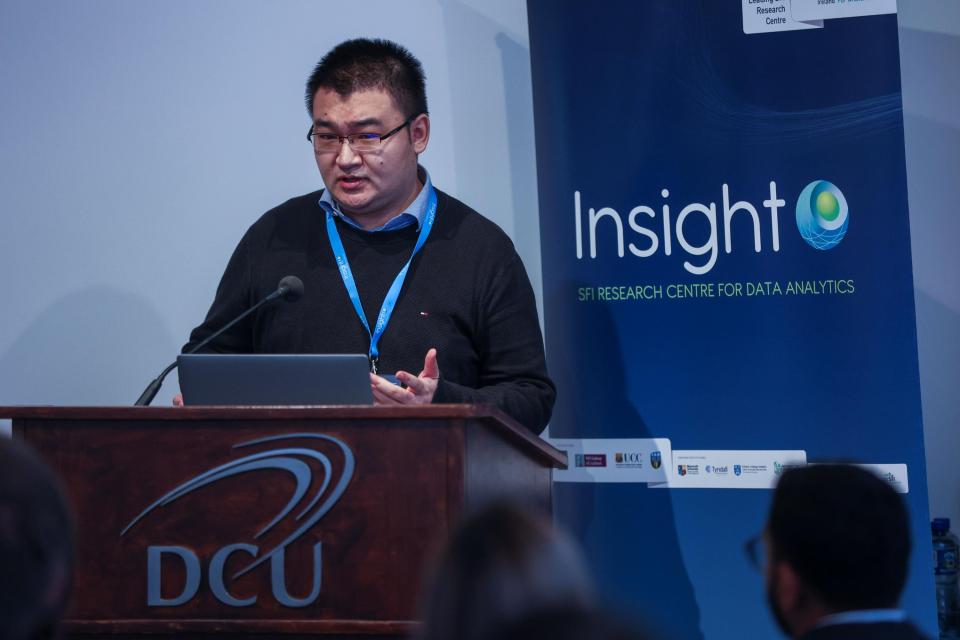
Dr Mingming Liu
“By reducing the reliance on individual fossil-fuel vehicles, these systems can help alleviate traffic congestion, decrease air pollution, and improve urban accessibility, aligning with SDG 11's aim of creating more sustainable and inclusive cities. Promoting active transportation modes such as walking, and cycling over fossil-fuelled vehicles is critical in encouraging people to move towards greener transportation options.”
Dr Goran Dominioni, Assistant Professor in the School of Law & Goverment, recently published a highly influential project looking at decarbonising international shipping. “We have looked at the potential role of carbon pricing instruments in decarbonizing international shipping in an effective and equitable way. Putting a price on GHG emissions from shipping would help to make zero-carbon bunker fuels more competitive compared to fossil-based ones, and therefore support the uptake of green fuels and related technologies.”
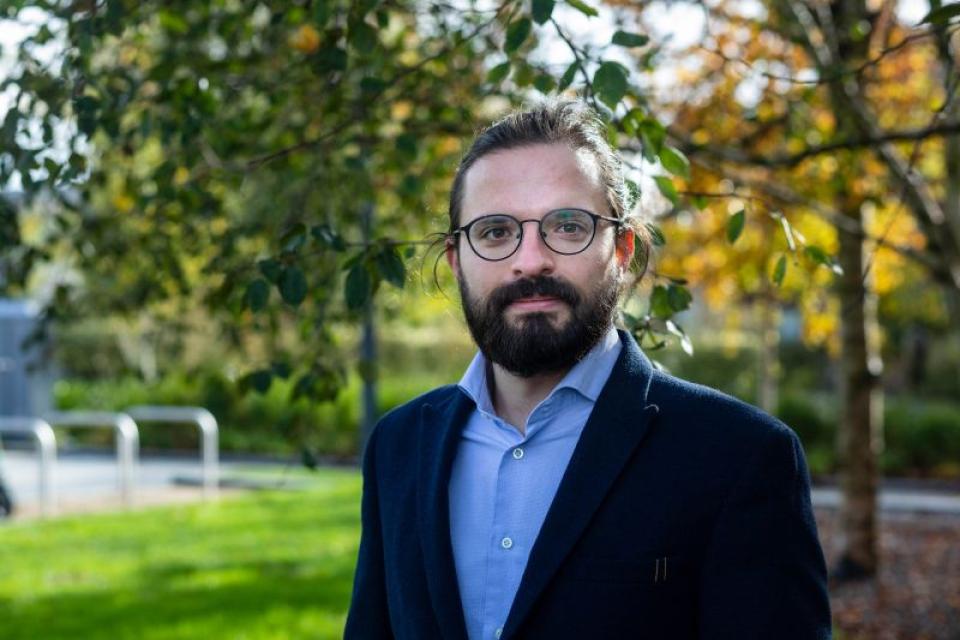
Dr Goran Dominioni
“In my research with the World Bank we have proposed a framework for the distribution of carbon revenues from shipping. The framework aims to deliver maximum climate benefits and support an equitable energy transition of the shipping sector.”
Dr Darren Clarke is an Assistant Professor in the School of History and Geography. “I am currently funded on an Environmental Protection Agency project examining the political economy of climate adaptation in Ireland.
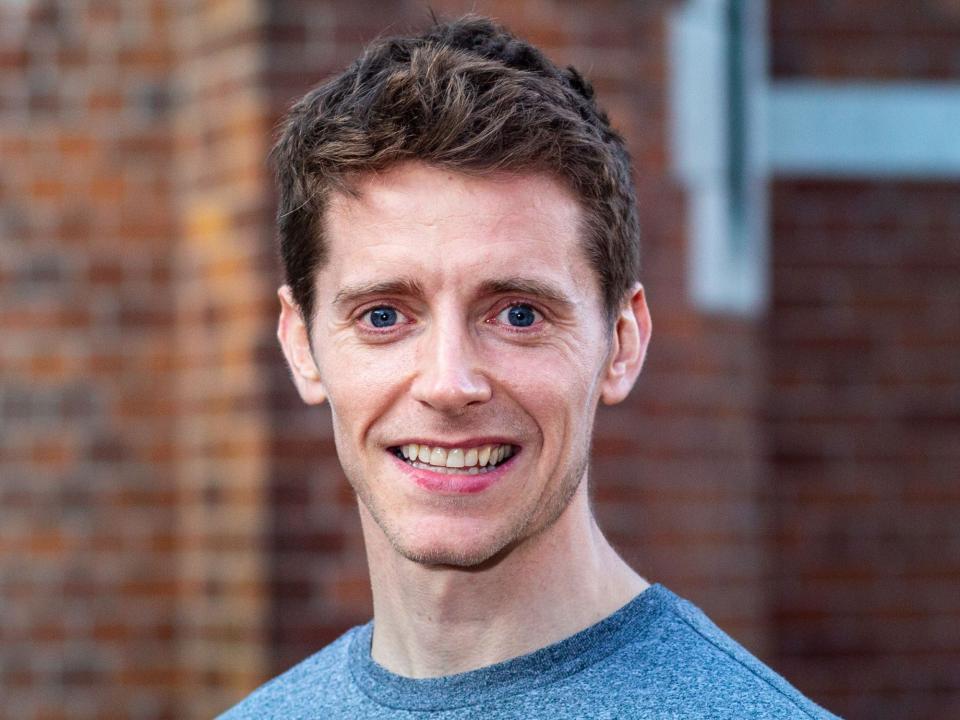
Dr Darren Clarke
"It supports the implementation of a number of the SDGs by reducing the risks faced by lower-income groups who are adversely affected by floods and drought and also by boosting productivity and spurring innovations.
The project also addresses Good Health and Wellbeing (SDG3). This will be addressed by the improvements of climate adaptation efforts which will, therefore, reduce the health risks to climate-induced weather events.”
Collaboration and opportunity
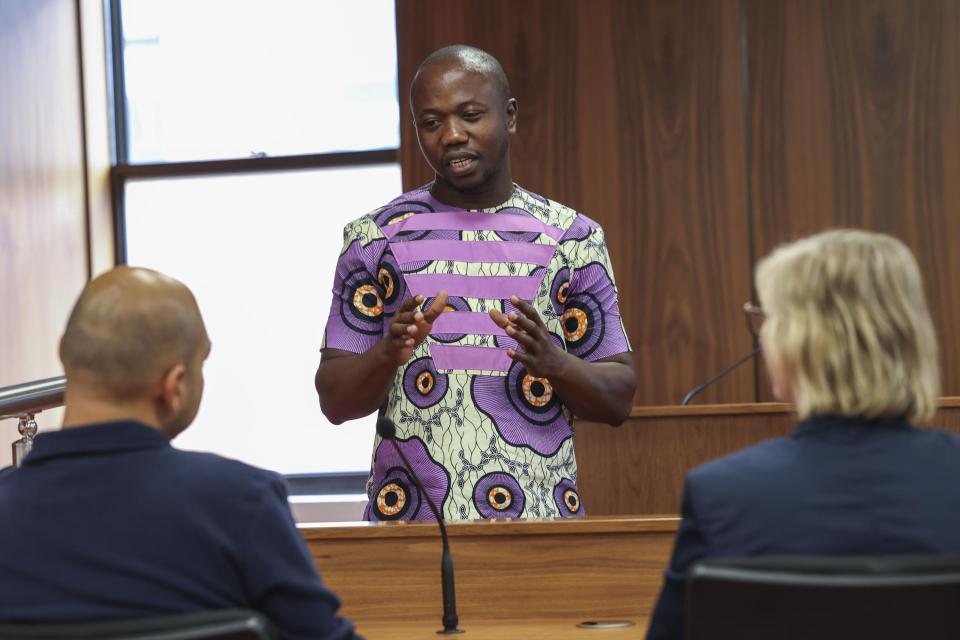
Dr Vincent Tawiah
“The SDGs encourage interdisciplinary research. The SDGs address a wide range of issues, and yet they are highly interconnected.” says Vincent Tawiah. “This has encouraged interdisciplinary research, as many of the goals require collaboration across multiple fields: researchers from diverse backgrounds working together to find holistic solutions to complex problems.”
Vincent is an Assistant Professor in the Business School. His work covers a wide range of topics linked to sustainability from tackling corruption to sustainability accounting.
“The SDGs are a global agenda, and researchers from different countries often collaborate on projects related to these goals. More than 80% of my research in SDGs related projects are done with international collaborators.”
Jochelle Laguipo is a PhD student at the School of Mechanical & Manufacturing Engineering and a researcher with the SFI MaREI Centre at DCU. Her research concerns the realisation of the potential of alternative energy sources. “The Sustainable Development Goals are a critical global framework that resonates deeply with my research and informs its direction. Overall these goals set a roadmap for addressing a wide range of pressing global challenges.”

Jochelle Laguipo
“In my own research, the SDGs serve as a guiding compass, aligning the objectives of my work with the broader mission of creating a more sustainable and equitable world. They provide a universal language for addressing complex issues and emphasise the interdependence of social, economic, and environmental factors.”
Dr Liu agrees: “By providing a shared framework, the SDGs encourage research into areas such as shared e-mobility systems/services that can help reduce emissions and alleviate congestion in cities, leading to a more accessible and eco-friendly environment for all citizens to engage and benefit.”
The impact of the SDGs
“The SDGs link policy to academic research.” says Dr Tawiah. “They give research visibility amongst policymakers at the local, national, and international levels as they link to key decisions and strategies. Many of my research projects on corruption and climate change have attracted attention from government and policy makers.”
“The SDGs reinforce the need for a holistic approach, mirroring the principles of Doughnut Economics, Degrowth, and Circular Economy, which underpin my research. By incorporating these frameworks and aligning with the SDGs, my work aims to contribute to the broader global agenda of sustainable development and the pursuit of a more just and resilient world for all.” says Jochelle Laguipo.
“While they are highly ambitious in their design, they leave a lot of room for interpretation of how they are implemented. Therefore we don't really have an overall sense of how good/bad countries/organisations are performing.” says Dr Darren Clarke.
“They do not go far enough in challenging the status quo. Even though the SDGs are global in scale, implementation depends on national governments which can select which SDGs they pursue. There is a danger of losing the bigger picture perspective and of prioritising those SDGs which serve existing political and economic interests.”
Funding for overlooked issues
“Given this relevance to policy, the SDGs have increased funding opportunities.” says Dr Tawiah. “Governments, foundations, and international organizations have dedicated funding to support research projects aligned with the SDGs. This is especially important for projects that may not have traditionally received as much attention or funding. For example, I recently got a New Foundation grant from the Irish Research Council on sustainability related projects in Nigeria.”
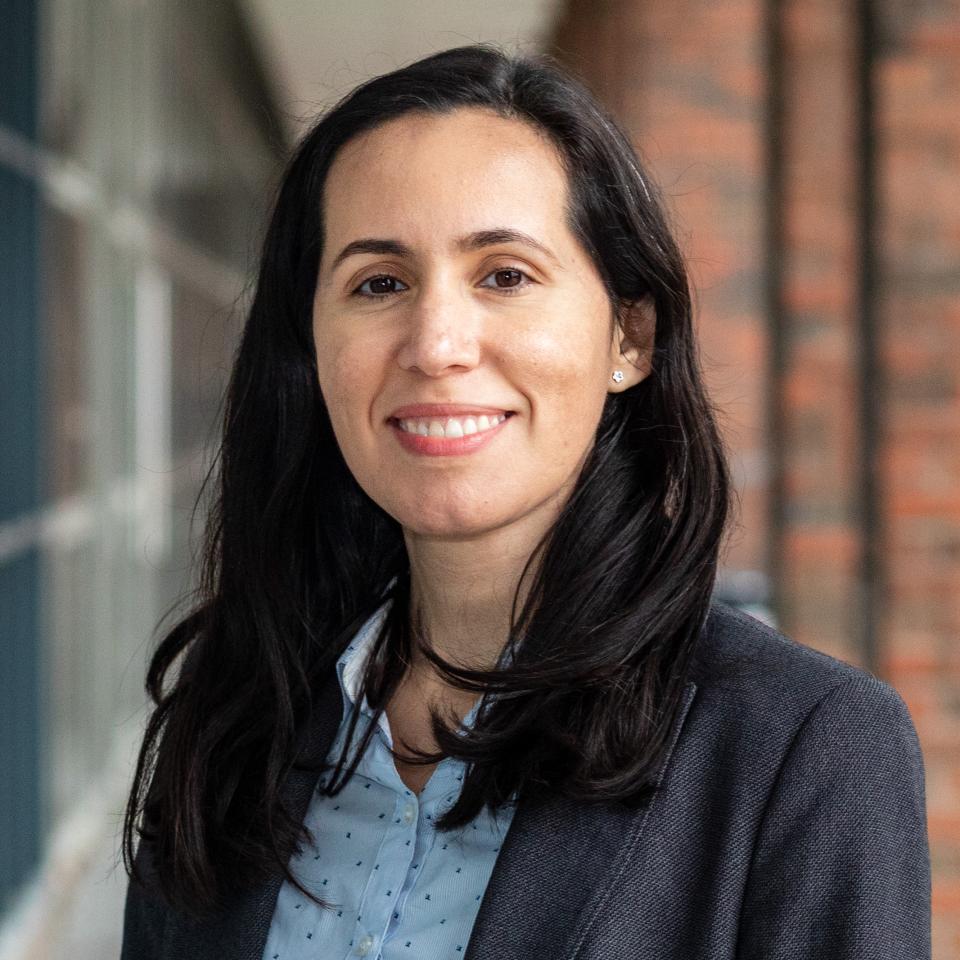
Dr Valesca Lima
Dr Valesca Lima is an Assistant Professor in the School of Law and Government. “In my research, I focus on reducing social inequality. Through policy analysis, advocacy, and empirical studies, this work involves evaluating the impact of policies and interventions, advocating for marginalized communities.”
This year Dr Lima, along with colleagues in the School of Electronic Engineering, was awarded funding for a project investigating the use of sensors to monitor energy usage and wellbeing in social housing. She has previously published work on social housing.
“In direct response to SDG 11, I have worked on affordable housing and its impact on addressing housing inequalities and improving urban living conditions. In particular, I’m interested in examining the impacts of financialisation of housing affordability, in addition to examining housing movements and housing advocacy influence on the design of housing policies.”
Aside from recognition in rankings systems, the SDGs can offer researchers the opportunity to collaborate and work on projects which may not otherwise receive funding. While they are not perfect, they can lead to research projects with real social and policy impact. The challenges they address are complex and multifaceted and require comprehensive solutions.
Further details of impactful SDG-linked research can be found at the DCU Impact Page
To note: Times Higher (THE) currently use SciVal data to determine the number of publications a university is publishing under each SDG, and a significant part of this data stems from our SDG-linked publications. Publications are affiliated to an SDG based on analysis of the keywords/terms used in a publication’s title, abstract, keywords and/or description. The query terms for each SDG area are available to download and view via this link: Elsevier 2022 SDG Mapping. Any queries are welcome to: Nathalie Growsewski, Rankings Officer (Nathalie.groszewski@dcu.ie).
